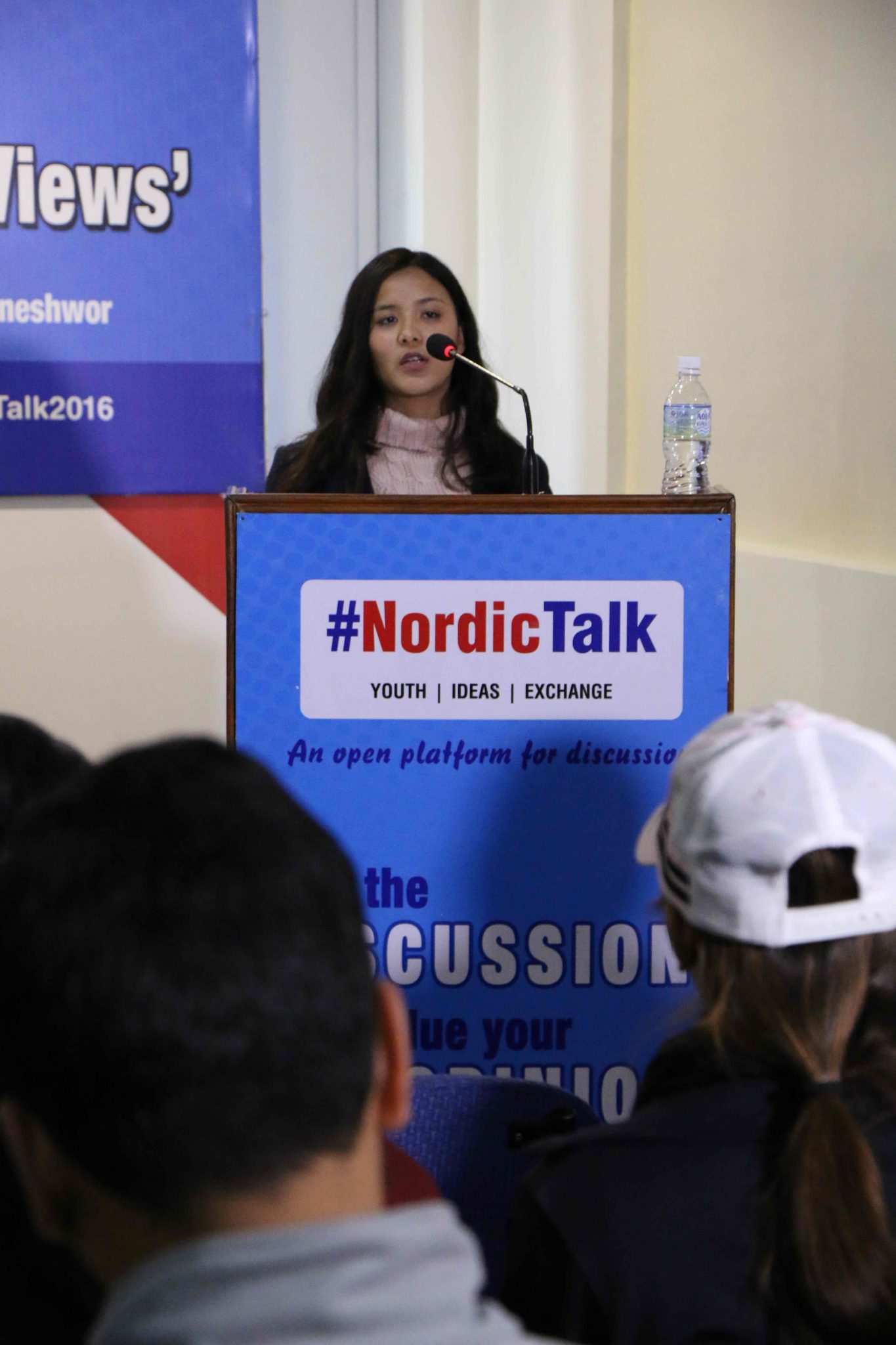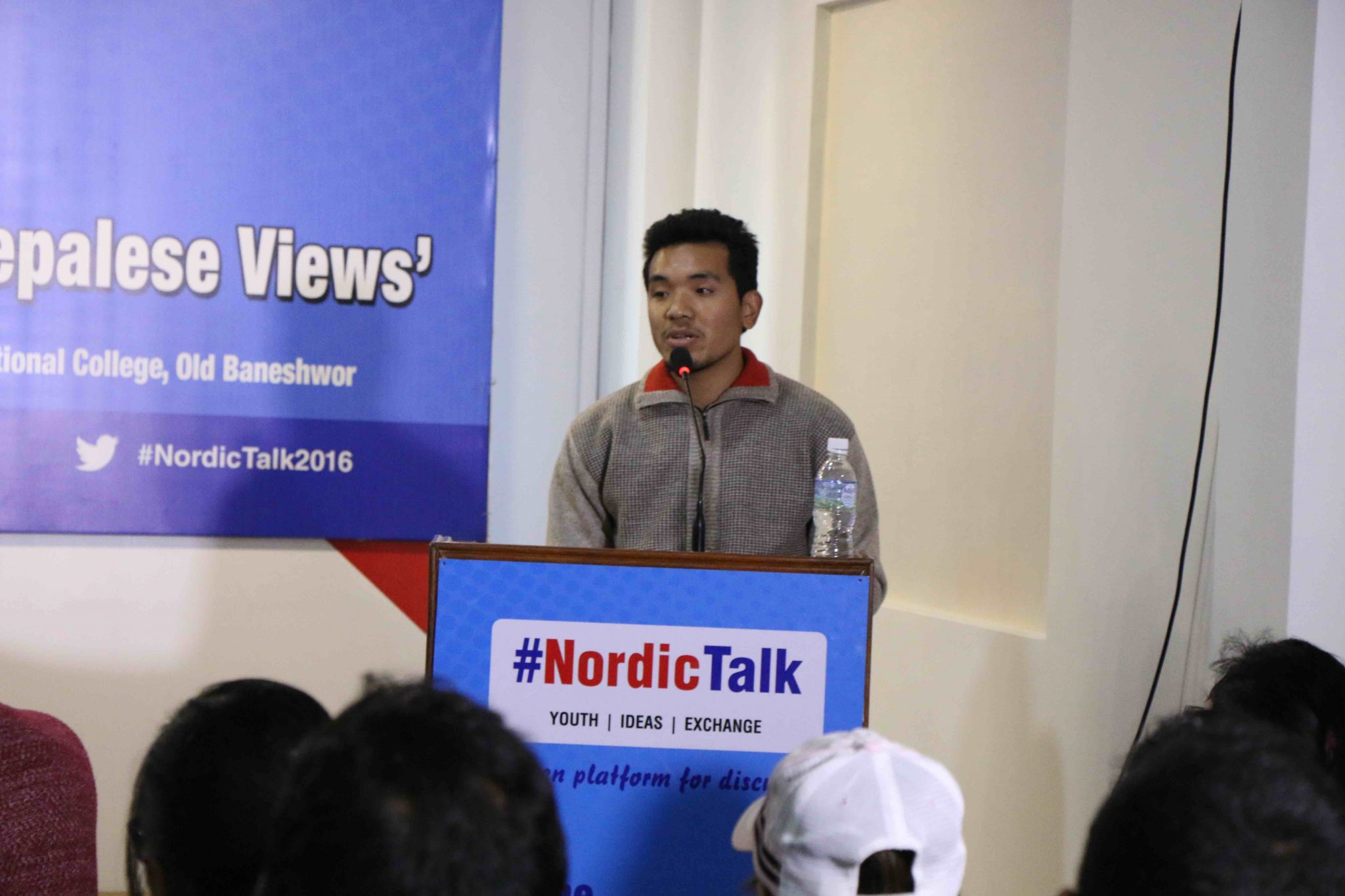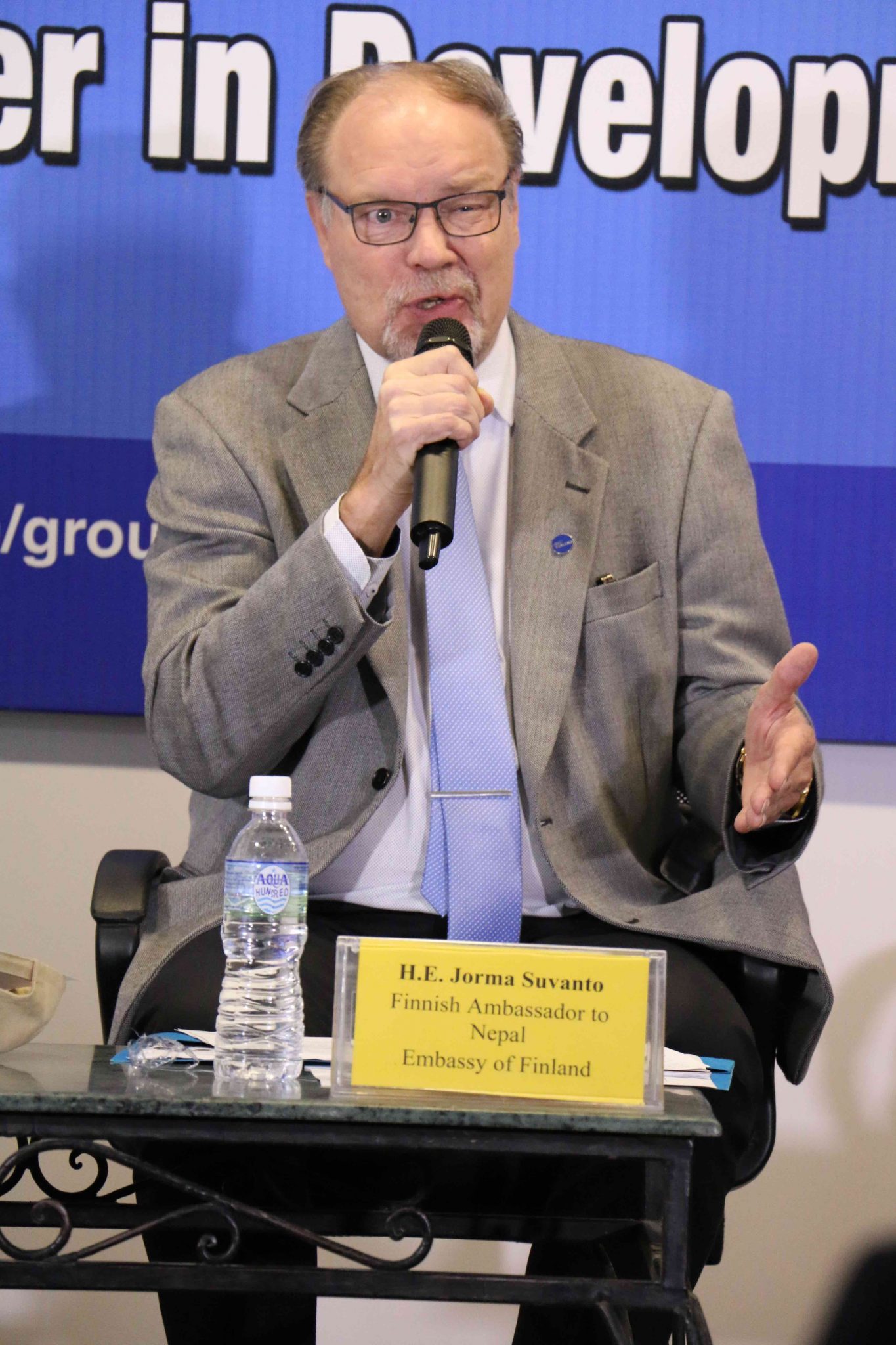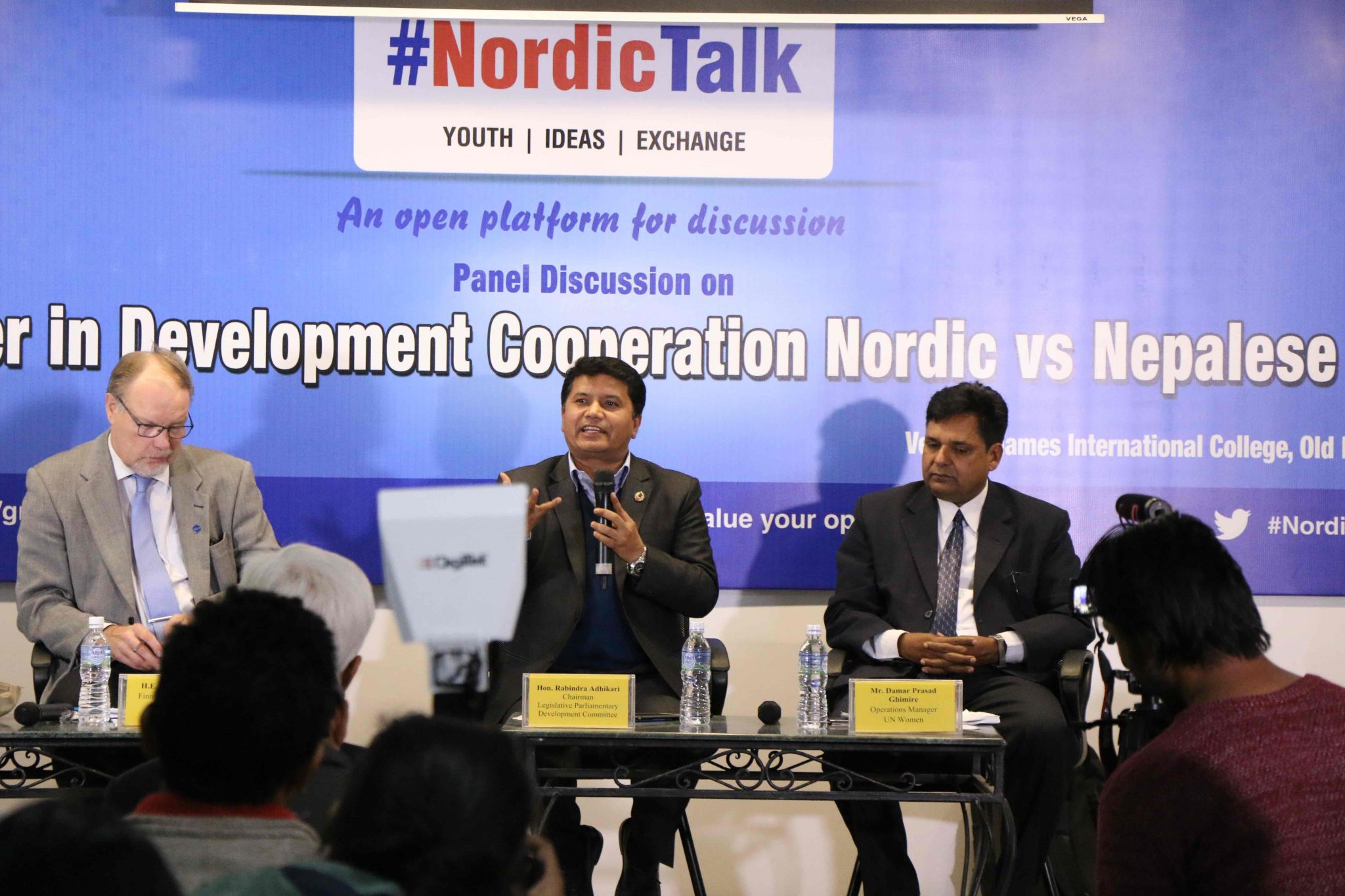Nordic vs Nepalese views
Kathmandu, December 14, 2016: Nordic Value recently organized a panel discussion session in Kathmandu. The programme, Nordic Talk, was a college level engagement organized by the Embassy of Finland, and sought to establish a platform for multiple stakeholders including the youth, subject experts, local youth leaders, and policy makers among others to come together and engage in a constructive discourse.
Anil Chitrakar, President, of Siddhartha Inc., moderated the session with Jorma Sovanto, Ambassador of the Finnish Embassy to Nepal, Rabindra Adhikari, Chairman, Development Committee of Parliament, and Damar Prasad Ghimire, Operations Manager, UN Women in the panel.
The programme started with two presentations from the students of Thames International College, Ms. Rubina Awale and Tshering Sherpa. Ms. Awale, in her presentation, stressed on Nepal’s development constraints ranging from social to cooperative dimensions. To accelerate the pace of development both social and economic dimension needs to be taken into account, she said. “Standards of livings, gender equality, human-development index are some lesson we need to learn from the Nordic countries. A new development co-operation policy is to develop a self-sustained economy. This policy should target to address the gap in equal income, invest in microenterprise and small-scale industries to help increase youth participation,†she explained.

Meanwhile, Tshering, the second student presenter, expressed his dream of Nepal that is free of prejudices, where equality prevails and sustainability is the only force to rely on. “It’s possible when investment is targeted to all primary, secondary and tertiary sector and through the development of Social Entrepreneurship and enterprise development,†he shared. He also stressed on the need to bring innovation in the current education system with courses that develop the critical thinking and problem-solving capacities of the students and courses that addresses the technical side based on the market demand of skill sets. He further stressed on the need to learn from the Nordic people: be practical, work for development and contribute from where you can.

In the panel discussion session, Rabindra Adhikari initiated his remarks with a key question: Where do we initiate change? “Political instability is an excuse; development is futile if it fails to develop the human life style and address the gender issues,†he shared.
Adhikari stressed on the need to look around to the neighboring countries like Bangladesh, Laos who have taken infrastructure development as a key to push their developmental agendas. He said that it is important to lay a level playing field to create employment with the countries and promote youths to be involved as we are lacking behind in all the major facet of development as we need to develop the capacity of the policy making bodies and organizations involved in the development field.
Similarly, Damar Prasad Ghimire stressed on the need to integrate career planning with the education system allowing students to have an idea of what sort of profession will suit their skills and enhance their capacity once they graduate. “A lot of youths are aiming to migrate to developed countries but are not willing to get their hands dirty in using their skills for the national interest. Our education system and our road map are not fit for producing skilled human resources that will address the national need. This is because a lot of resources are not put to use. Youths need to be involved in uplifting the human development index, gender equality, income equality,†he explained. He further added that impact generation via developmental projects is necessary, and operational efficiency can be achieved only via systems that are in place.
Meanwhile, Jourma Suvanto said that Developmental co-operation is a learning process, needs flexibility and progresses with trial and error with its result often being unknown in advance. “It can only be impactful once a project is in action for several years. Use of networking and communication tools is essential in the current context,†he said adding “foreign and national agencies, and local experts need to focus on a specialized workforce that is good in networking.â€








